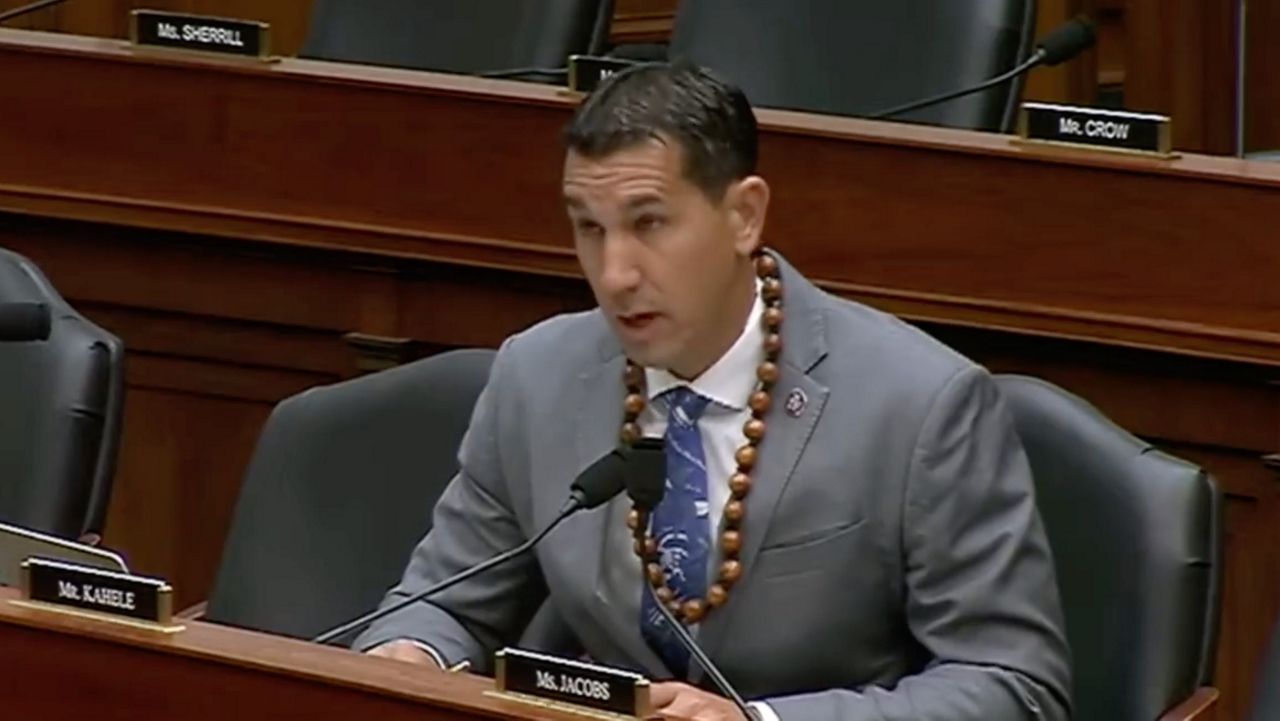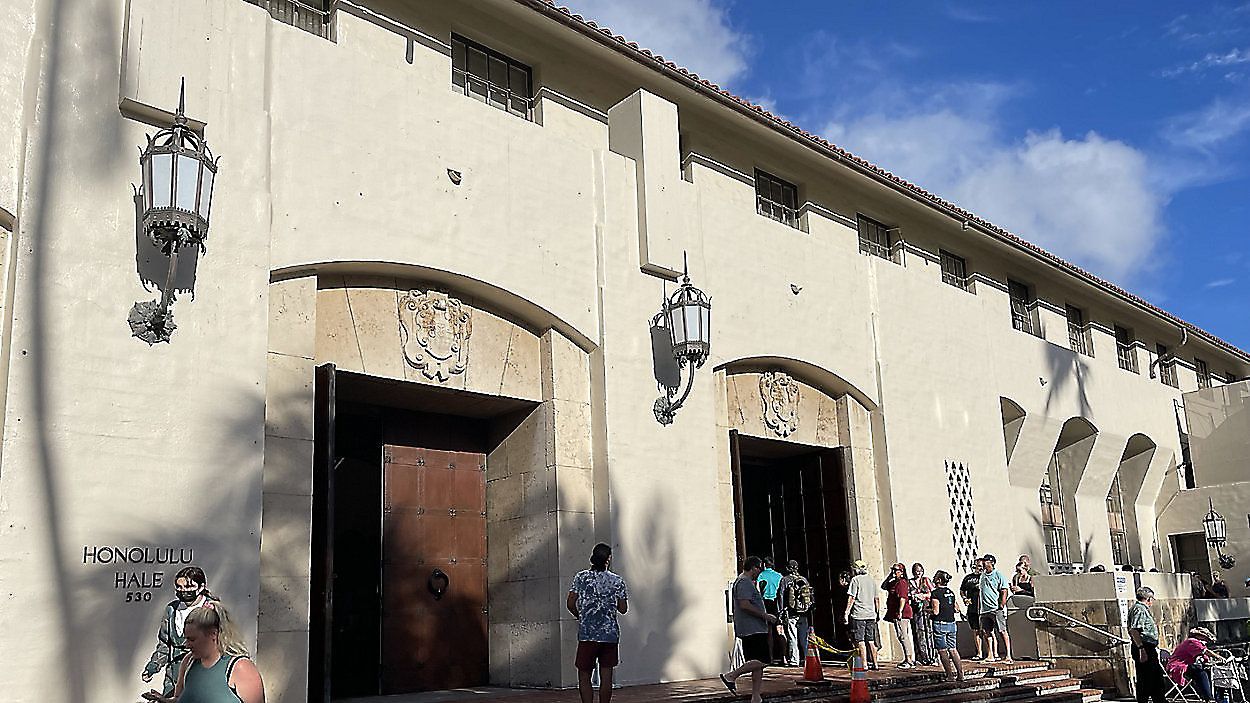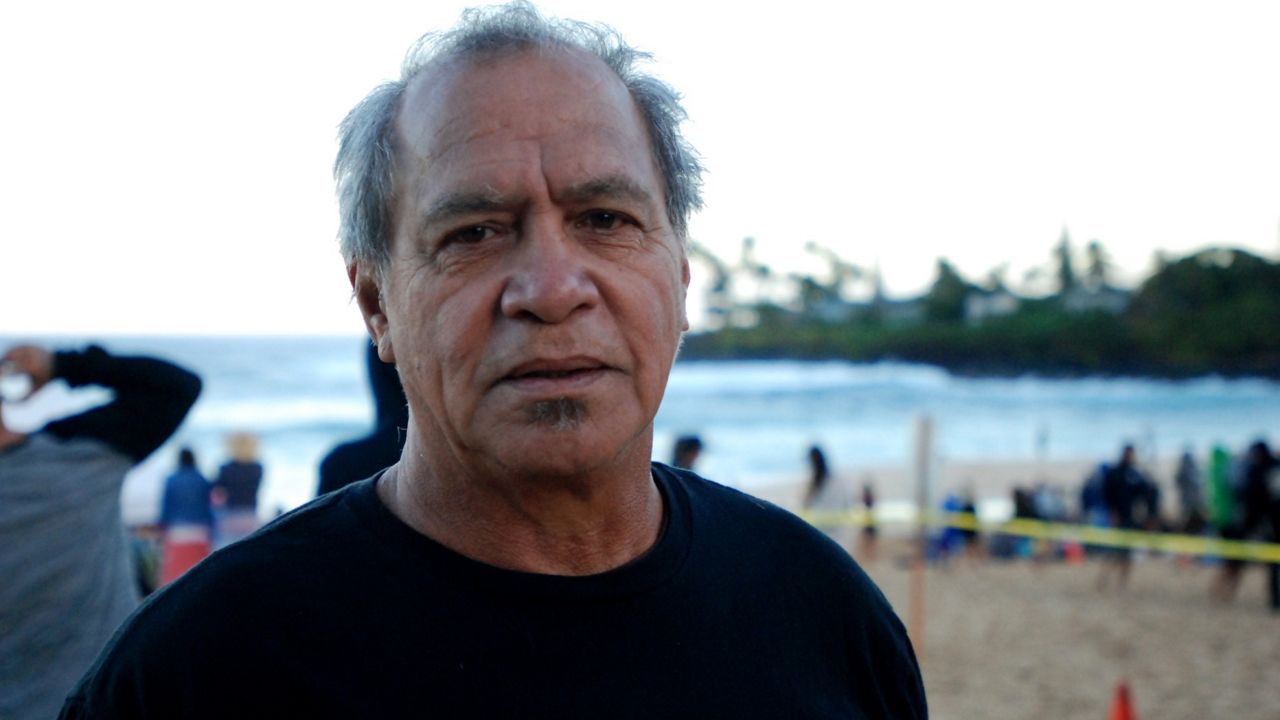U.S. Rep. Kai Kahele continued to push for the U.S. Army to return Makua Valley to the state of Hawaii during a House Armed Services Committee hearing on Thursday, calling on his House leadership to schedule a hearing on the Leandra Wai Act and asking Army secretary Christine Wormuth to justify the Army’s continued control of the land.
Kahele, who last week announced his candidacy for governor of Hawaii, has made the return of Makua Valley the defining cause of his brief time in Congress.
In March, Kahele introduced the Leanda Wai Act, named the Native Hawaiian activist and former Malama Makua president, which would provide for the remediation and return the Makua Military Reservation to the state.
“In my humble opinion, the United States Army does not need this land for training,” Kahele said.
“The last time the Army conducted any live fire training in Makua was in 2004. Even in 20 years of war in Afghanistan and Iraq, the military did not train in Makua. Furthermore, returning the land to the people of Hawaii is a necessary right to correct a historic wrong.”
The Army seized Makua after imposing martial law in Hawaii in 1941, condemning existing land grants and evicting homeowners from their properties. Despite assurances after World War II that the lands would be returned to their rightful owners, the Army has continued to lease the land from the State. The current lease for several military-held areas across the state will expire in 2029. Live-fire training at the reservation was halted in 2004 pending completion of an environmental impact study.
As Kahele noted, Makua is home to some 41 endangered plant and animal species and the site of several Native Hawaiian temples, shrines and petroglyphs.
“I’m urging the committee to hold a hearing on this act,” Kahele said.
During Thursday’s hearing, Kahele asked Wormuth directly, “what is justification for keeping Makua in the army’s land inventory and continuing to pursuing a new lease with the state of Hawaii rather than returning and remediating?”
Wormuth responded that the Army still considers Makua, as well as the Pohakuloa Training Area on Hawaii island, as a critical training area.
“While we may not have conducted live fire in Makua, there are other kinds of training that go on there that (U.S. Army Pacific Commander Charles Flynn) views as really essential for us to have our forces in the Indo-Pacific maintain their readiness,” she said.
Wormuth said that while the Army is open to speaking with the state and representatives of the Native Hawaiian community on how better to ensure the safety of endangered species in Makua and provide Hawaiian cultural practitioners access to sacred sites, “I think we view those training areas as very important to maintaining our readiness.”
Kahele said he viewed the Red Hill water-contamination crisis as a “turning point” in the military’s presence in Hawaii and believes that the coming decade will be a pivotal time in the state’s relationship with the military.
He said he appreciates what the military means to the overall economic health of the state but added, “We have to find a balance.”
Michael Tsai covers local and state politics for Spectrum News Hawaii.








